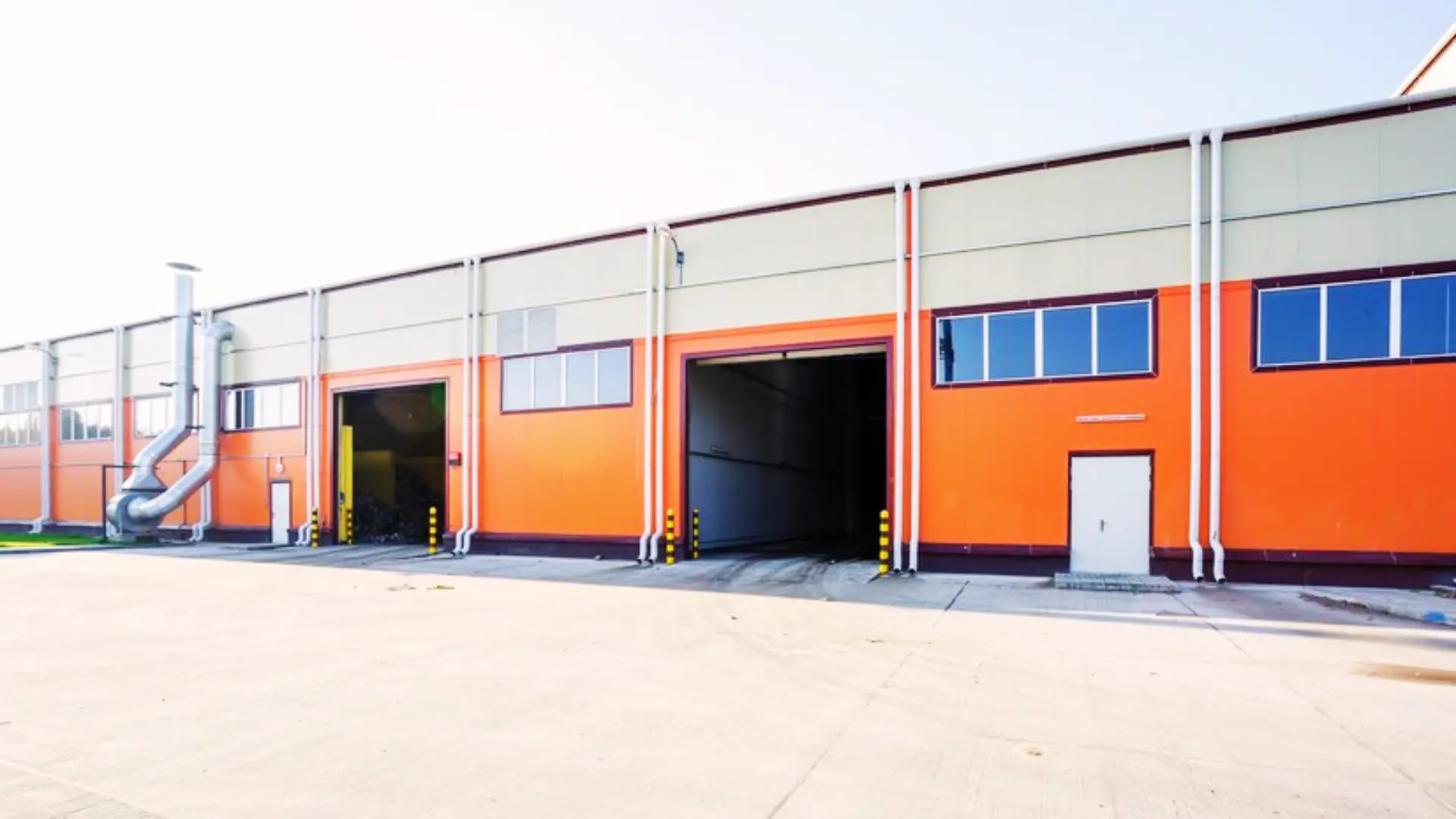When you’re looking to secure a Business Loan Against Property (BLAP) in India, the loan amount you receive often depends on several factors. Many of these can be actively improved with some smart moves over a period.
Are you planning to fund your business expansion with this loan? Or are you looking to consolidate your debts? You could also be trying to meet other financial goals with the help of an LAP. In all these scenarios, it is crucial to ensure that you maximise the value of your property and eligibility for a loan.
In this article, we lay out some information, practical strategies, and lesser-known tips to help you unlock a higher loan amount against your property.
Factors That Influence Property Value
The amount you can secure under a business loan against property is based on the actual value of your property. Understanding what impacts this value will give you a clearer idea of where to focus your efforts.
Location of the property
Properties in prime or well-developed areas fetch higher valuation than those in less sought-after locations. For instance, a house in a metropolitan city like Mumbai or Bengaluru is likely to be valued higher than one in a semi-urban area.
A two-bedroom flat in a gated community with schools, malls, and hospitals nearby will offer significantly more value than a similar flat in a poorly connected locality or a tier-3 town.
The condition of the property
The age, upkeep, and structural integrity of a property also impact its valuation. A modern, well-maintained property with high-quality finishes and no visible signs of wear and tear attracts a better appraisal compared to an older property with peeling paint, leaky plumbing, seepage, or older designs. If your property requires extensive repairs or has outdated amenities, it could fetch a lower market value.
Market trends
Real estate market conditions can dramatically impact the value of your property. A house in Pune’s IT corridor may see its value spike during an economy or tech boom, while the same property may witness stagnant or reduced valuation if demand for housing in the area dips.
During a property boom, valuations tend to rise, benefiting homeowners seeking loans. When there is a market slowdown, even premium properties may witness a dip in their value. In the metropolitan areas, property prices fluctuate frequently.
Size of the property: Built-up and carpet area
The usable area of your property, or the carpet area, plays a crucial role in setting its value. The carpet area indicates the actual usable floor space within the walls, leaving out common areas like lobbies or staircases. Banks focus more on the carpet area than the built-up area as it provides a clearer picture of the functional living space.
This can be illustrated well with an example of two apartments with the same area – a 1,200 sq. ft. apartment with a carpet area of 1,000 sq. ft. and a 1,200 sq. ft. apartment with only 850 sq. ft. of carpet area. The one with the larger carpet area will receive a higher valuation.
Legitimacy and completeness of legal clearances and documentation
A property with a clear title deed, sanctioned building plan, and valid occupancy certificate will be appraised more favourably than another that lacks any or all of these. Properties with no disputes and up-to-date tax receipts are always valued higher.
Any legal or regulatory issues, such as incomplete property registration or encumbrances, can drastically reduce your property’s market value and may even make it ineligible for a loan since there is a risk for the lender.
Steps to Increase Property Value
If you’re aiming for a higher loan amount, taking steps to boost your property’s value is a smart strategy. Here’s how you can do it:
Renovations and repairs
Refurbishing or upgrading your property’s interiors or exteriors can definitely enhance its value. Simple fixes like repainting walls, repairing plumbing, or upgrading kitchen and bathroom fixtures can make a big difference. A fresh coat of paint and newer lighting fixtures could help transform an old living area into an inviting, contemporary space, which can immediately improve valuation.
Upgrade features
Fitting your older kitchen with modular cabinets and smart home devices or installing solar panels for a green home can add to your property’s appeal. Even something as simple as a covered parking space can increase its value.
Focus on bringing in energy efficiency
Green, energy-efficient homes are becoming increasingly popular. From installing LED lighting and efficient cooling systems to ensuring ample natural light through windows, energy-saving solutions save money in the long run and boost your property’s valuation.
How Property Valuation Affects Business Loan Against Property Eligibility
The loan amount you’re eligible for is directly proportional to your property’s market valuation. Here’s how this connection works:
- Loan-to-Value (LTV) ratio
Banks and NBFCs (Non-Banking Financial Companies) typically offer loans between 60% and 80% of the property’s market value. So, if your property is valued at ₹1 crore, you can expect to be eligible for a loan ranging from ₹60 lakhs to ₹80 lakhs.
- Availability of the required documentation for a higher loan amount
Thorough documentation is a mandatory requirement if you want a higher valuation for your property. Ensure you have all necessary documents like the title deed, conveyance documents, occupancy and encumbrance certificate, and property tax receipts to avoid delays or rejections.
- Impact of the property type, its age, and regular maintenance
It has been observed that commercial property as collateral can have a different valuation metric compared to residential real estate. Of course, newer or well-maintained properties tend to attract better valuations. It has also been noted that well-cared-for properties get better evaluations, larger loan amounts, and favourable interest, terms, and tenures.
Additional Tips and Actionable Strategies that Can Help You
Taking steps to boost your property’s valuation is just one part of the equation. Here are some other steps to ensure a smooth and successful loan application process:
Improving your credit score
A higher credit score indicates better financial health, increases your eligibility, and helps you negotiate better interest rates.
- Check your credit score regularly and resolve discrepancies, if any
- Clear outstanding credit card dues and personal loans
- Avoid taking on new debt at least six months before applying for an LAP
- Maintain a low credit utilisation ratio (preferably under 30%)
Choosing the right bank or financial institution
Compare LAP offers from different banks and NBFCs to find the one that suits your requirements best.
- Research and compare LAP offers on aggregator websites or consult a financial advisor
- Look for lenders that specialise in property loans and offer a higher LTV ratio
- Consider the lender’s track record for transparency, customer service, and disbursal speed
Ensuring you provide accurate information
Show extra diligence in furnishing the appropriate details during the application process to avoid unnecessary delays or complications.
- Double-check all personal, financial, and property-related details before submission
- Ensure all property documents, including title deeds, encumbrance certificates, and tax receipts, are updated and accurate
- If applicable, include additional proofs like rental income agreements to strengthen your case
Errors in your name, property address, or income details could delay your application by weeks or even disqualify you.
Understanding and pre-planning for EMI payments
Use a loan EMI calculator to understand your repayment obligations and choose a loan amount, rate, and tenure that aligns with your financial capacity.
- Use a loan EMI calculator to estimate monthly instalments
- Choose a tenure that balances affordable EMIs with interest outgo since longer tenures reduce EMIs but increase the total interest paid, while shorter tenures do the opposite
- Factor in your current obligations (e.g., existing loans, living expenses) when determining the loan amount
Demonstrating financial stability
Lenders prefer applicants with stable incomes and strong financial health. Demonstrating your ability to repay the loan can improve your eligibility and loan terms.
- Prove consistent income through salary slips, IT returns, or bank statements
- If self-employed, include audited financial statements to showcase your earning capacity
- Maintain a healthy savings buffer to indicate financial discipline
Prepaying existing loans to improve debt-to-income ratio
If you have existing loans, prepaying a portion can lower your DTI ratio, making you a more favourable candidate for an Business Loan on Commercial Property .
- Identify loans with higher interest rates and prioritise paying them off first
- Use bonuses or windfall gains to prepay outstanding debts before applying for a new loan
Conclusion
Getting a higher loan amount against your property in India is about strategic planning, well-planned upgrades, and complete and compliant documentation. Understanding the factors that influence property value and proactively upgrading and enhancing it can help you maximise your valuation and your chances of securing a loan with good terms.
It may seem like a bit of effort, but with a comprehensive solution for all documentation needs like the EFL Clik App, you can unlock the true potential of your property and turn it into a valuable financial asset. Reach out to us for expert advice and solutions tailored to your loan requirements.
FAQs:
How much loan can you get against a property in India?
You can typically get a loan amount equivalent to 60%-80% of your property’s market value.
Can I get a home loan more than the property’s value in India?
No, the Reserve Bank of India has capped loan amounts at a maximum of 90% of the property’s value under the best circumstances.




